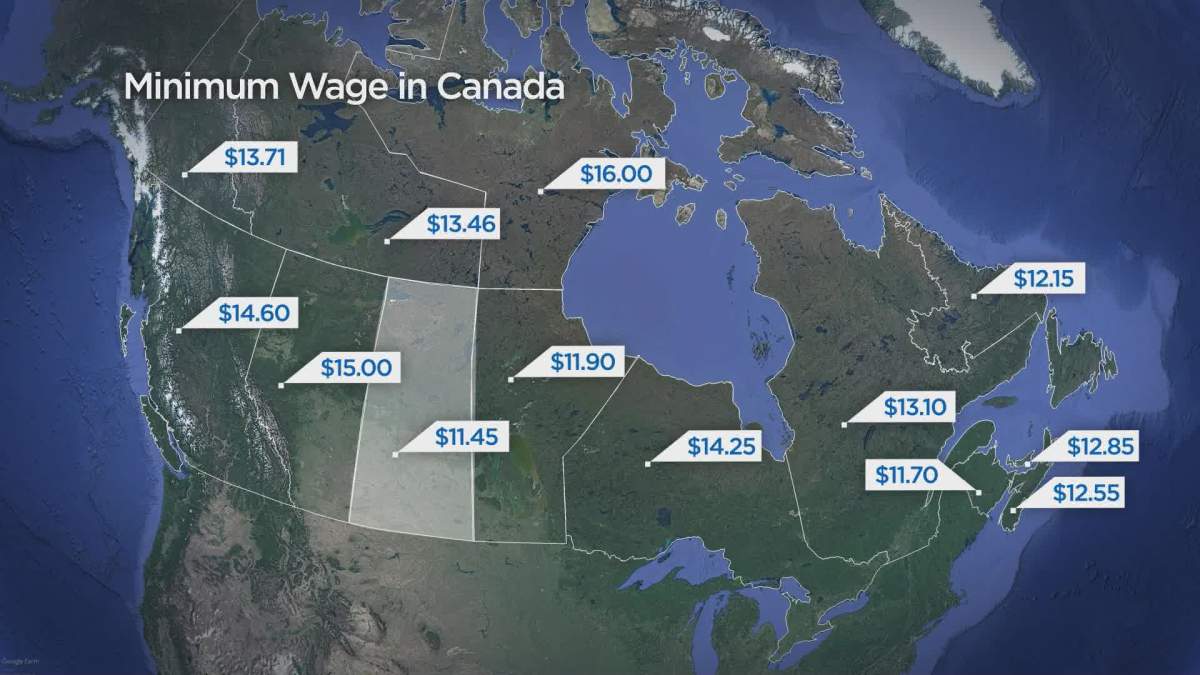At a campaign announcement Sunday morning, Saskatchewan NDP Leader Ryan Meili confirmed his party’s commitment to phase in a $15 an hour minimum wage if elected.

“A higher minimum wage kickstarts local economies from the bottom up,” Meili said in his Sunday stump speech.
The promise, which if implemented would likely mean Saskatchewan would no longer have the lowest minimum wage in Canada, is drawing mixed reactions from the community.
Restaurants Canada Western vice-president Mark von Schellwitz suggested a higher minimum wage could mean lost jobs, noting that restaurants are Saskatchewan’s “third largest private employer” and that businesses are already struggling to employ the amount of workers they usually do.
“It would make our unemployment situation even worse as restaurants are struggling to keep people on payroll anyways,” von Schellwitz said.
Justin Linder, who owns the Rotisserie in Regina, echoed that sentiment and said that a bump in wages would likely mean a bump in menu prices.
“I don’t pay minimum wage to my employees because I feel like they’re worth more than minimum wage,” Linder said. “But there’s no room in the budget right now as is and to pay people more — you’re either going to have to pass it on to the customers or you’re gonna have to absorb it. And right now you can’t absorb that kind of increase. And I don’t want to have to pay my customers more.”
But Saima Desai, an organizer with Fight for 15 Saskatchewan, supports the increase.
“We’ve been talking about a $15 an hour minimum wage in Saskatchewan for so long that now it actually needs to be more than $15,” she said. “Fifteen dollars alone isn’t a minimum wage but it’s a good first step.”

Get breaking National news
Desai pointed to a 2016 report, published by the Canadian Centre for Policy alternatives that suggested Saskatchewan’s minimum wage is well below what it calls a “living wage”.
The report obtained its “living wage” figure for Regina, $16.95 an hour, by estimating annual household living expenses for a “model family” of four.
“$11.45 does not go very far at all. It’s ridiculous that anyone in this province has to live on that amount of money,” said Desai. “Raising the minimum wage would mean more money in the pockets of the people most likely to spend that money in the Saskatchewan economy. It shows a commitment to people and to making life livable.”
The NDP is also pledging to help some small businesses adapt to the proposed increase with a rebate program.
To qualify for the program, businesses would have had to have qualified for the small corporate tax rate in the previous year and have reported a taxable income of less than $200,000.
The rebates would be equal to 25 per cent of the cumulative increase multiplied by the number of minimum wage hours paid out.
- 26.25 cents per employee hour at $12.50 in 2021-22 ($1.05 increase in minimum wage)
- 51.25 cents per employee hour at $13.50 in 2022-23 ($1.00 increase in minimum wage)
- 76.25 cents per employee hour at $14.50 in 2023-24 ($1.00 increase in minimum wage)
- 88.75 cents per employee hour at $15.00 in 2024-25 ($0.50 increase in minimum wage)
Businesses in retail, accommodation and food services, and agriculture, forestry, fishing and hunting sectors.
In recent years the Saskatchewan Party has been raising the minimum wage nearly annually using a formula that considers changes to the Consumer Price Index and Average Hourly Wage in Saskatchewan.
According to the government of Saskatchewan website, the indexation formula “which helps ensure that all people benefit from the economic prosperity of the province”.
When asked for comment on the NDP plan, Saskatchewan Party spokesperson Jim Billington replied with the following statement.
“The Saskatchewan Party has a plan for a strong economic recovery and more jobs. That plan is already working, as 8700 new jobs were created in September and Saskatchewan now has the lowest unemployment rate in Canada.
“Now is not the time to slow down that economic recovery and job growth by adding additional costs to small businesses, many of which are still feeling the impact of the pandemic. Even with the partial subsidy the NDP is proposing, this would still drive up the cost to small businesses, making it harder to retain and hire new employees.
“The Saskatchewan Party government has made life more affordable for those making minimum wage by significantly reducing their personal income tax. By doing so, we are able to put more money in the pockets of low income earners in a way that does not add to the financial burden on small businesses and kill jobs.”
At this point in the campaign, the Saskatchewan NDP is the only provincial party to commit to increasing minimum wage.










Comments